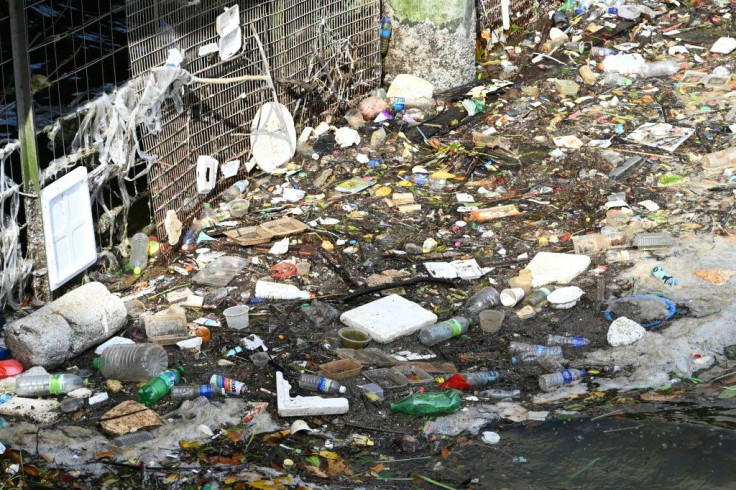Fishmonger Finds 'Distressing' Item Inside Sea Creature's Stomach, Video Goes Viral
A fishmonger in China's Shandong province was baffled after finding a "distressing" item inside the stomach of a fish. A shopper was in the process of buying the sea creature Wednesday when he said it felt abnormal around its stomach.
The worker, who was selling the fish in a local market in the city of Yantai, was immediately asked to cut the creature open. To everyone's surprise, the worker pulled out a plastic cup from its stomach. The shopper, identified as Mr. Yu, filmed the incident and shared it on the Chinese social media site Weibo, Yahoo News Australia reported. It was viewed more than 70 million times.
The item, a broken disposable plastic cup, could be seen in the video shared online. The fishmonger informed the shopper this was not the first such incident and that they had earlier found old food tins inside fish.
Yu told local media outlets that it was a "distressing" find and urged people to dispose of their plastic waste responsibly.
Many users shared Yu's concern and were disturbed by the incident. Yu wrote that everyone should take care of the environment and should not litter the sea.
"I feel distressed watching this," one person said. Another wrote: "It is everyone's responsibility to protect the environment."
Some users were baffled how the small fish managed to consume the cup.
Last year, Australia's Commonwealth Scientific and Industrial Research Organization reported that at least 14 million tonnes of plastic pieces were likely sitting at the bottom of the world's oceans. Seabirds and fish consume them mistaking them for food items.
Finding microplastic in remote locations and at such depths "points to the ubiquity of plastics, no matter where you are in the world," Dr. Denise Hardesty, co-author of the research published in the journal Frontiers in Marine Science, told the Guardian.
"This means it's throughout the water column. This gives us pause for thought about the world we live in and the impact of our consumer habits on what's considered a most pristine place," she said. "We need to make sure the big blue is not a big trash pit. This is more evidence that we need to stop this at the source."






















